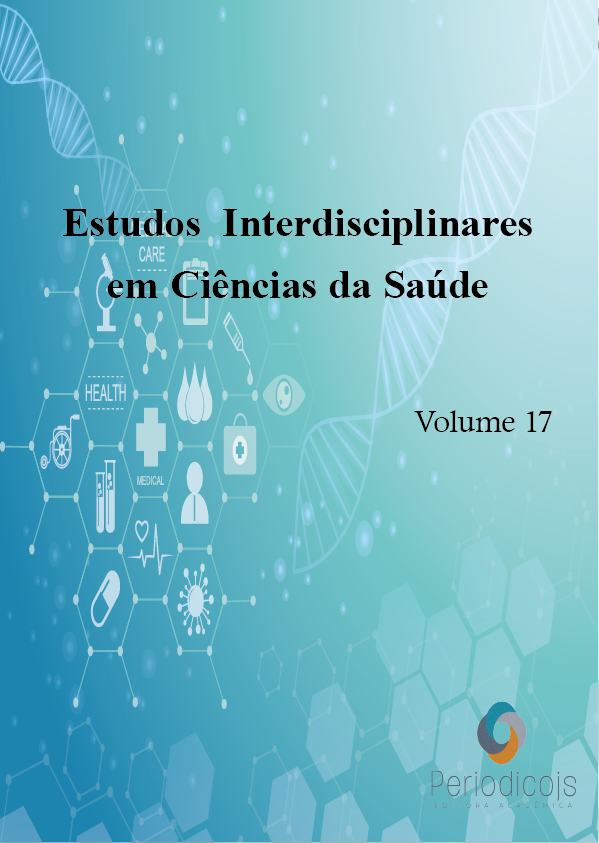Resumo
A saúde única, abordagem que busca integrar a saúde humana, animal e ambiental, tem se destacado como uma abordagem fundamental para promover a sustentabilidade da saúde global. Nesse contexto, a conscientização e a educação desempenham um papel crucial na prática veterinária. Este trabalho tem como objetivo discutir a importância da conscientização e da educação em saúde única para a prática veterinária, abordando os desafios e as oportunidades relacionados a essa abordagem. A metodologia utilizada foi uma revisão bibliográfica. Os resultados destacam que a conscientização e a educação em saúde única desempenham um papel fundamental na prática veterinária, permitindo que os profissionais compreendam a complexidade dos desafios de saúde global e atuem de forma eficaz na prevenção, controle e promoção da saúde de pessoas, animais e ecossistemas. No entanto, os desafios relacionados à implementação da abordagem global de saúde única, como políticas públicas adequadas e colaboração interdisciplinar, devem ser abordados para garantir o sucesso dessa abordagem. Em suma, a conscientização e a educação em saúde única são cruciais para a prática veterinária, proporcionando uma compreensão ampla e abrangente dos vínculos entre a saúde humana, animal e ambiental. Essa abordagem integrada e unificadora é fundamental para enfrentar desafios atuais e futuros, garantindo a sustentabilidade da saúde global.
Referências
Barua, H., et al. (2018). Education and research in veterinary public health: Reflections on a decade of progress in Southeast Asia and the Western Pacific. Revue Scientifique et Technique (International Officeof Epizootics), 37(2), 433-443.
Bodewes, R., et al. (2018). Influenza A virus infection dynamics in respiratory tissues of inoculated pigs.Veterinary Research, 49(1), 59.
Cleaveland, S., et al. (2018). One Health contributions towards more effective and equitable approaches to health in low- and middle-income countries. Philosophical Transactions of the Royal Society B, 372(1725), 20160168.
Damborg, P., et al. (2018). Educating for one health: reflections on university approaches to cope with theemergence of new diseases. Veterinary Record, 183(25), 778-781.
Doherr, M. G., et al. (2021). Animal health and the one health concept in agricultural intensification: acceptability and knowledge gaps among stakeholders. Veterinary Record, 188(8), e36-e36.
Fischer, E. A. J., et al. (2018). Economic analysis of animal health and welfare?Scientific input for animalhealth policies. European Journal of Companion Animal Practice, 28(2), 75-80.
Fitzgerald, J., et al. (2020). One Health, pandemics and the politics of community. Social Science &Medicine, 259, 113179.
Garcia, A. P. F., et al. (2021). Antimicrobial use in animal production: current situation and perspectives forsustainability in a One Health context. Frontiers in Veterinary Science, 8, 669265. Gibbs, E. P. J., et al. (2018). One Health: synthesis opportunities for EcoHealth in developing countries.EcoHealth, 15(4), 738-746.
Gibbs, E. P. J., et al. (2018). The International Health Regulations (2005): a commitment to global partnership and accountability. Revue Scientifique et Technique (International Office of Epizootics), 37(2),341-350.
Grace, D., et al. (2018). Zoonoses?Neglected Public Diseases and Pandemic Risks. International Journalof Infectious Diseases, 77, 22?29.
Halliday, J. E. B., et al. (2018). Integrating quantitative and qualitative data and findings when undertaking randomised controlled trials. BMJ Global Health, 3(Suppl 1), e000840.
Häsler, B., et al. (2020). One Health governance: lessons from the COVID-19 pandemic. Frontiers inVeterinary Science, 7, 598462.
Häsler, B., et al. (2020). One health economics to confront disease threats. Transboundary and EmergingDiseases, 67(6), 2393-2403.
Hamilton, K., et al. (2019). One Health legislation in Europe. Revue Scientifique et Technique (InternationalOffice of Epizootics), 38(1), 17-26.
Hueston, W., et al. (2020). An overview of the intersection of veterinary public health and one health.Journal of Veterinary Medical Education, 47(3), 235-247.
King, L. J., et al. (2020). The One Health approach?why is it so important? Tropical Medicine and InfectiousDisease, 5(1), 6.
Kock, R. A., et al. (2020). Wildlife health and zoonotic infections?a One Health perspective. Viruses, 12(9),982.
Kock, R. A., et al. (2021). Out of the starting gates: COVID?19 vaccine distribution and vaccination ofveterinarians. Transboundary and Emerging Diseases, 68(1), 4-9.
Lake, R. J., et al. (2020). Implementation of One Health approaches: a systematic review. One HealthOutlook, 2(1), 1-12.
Leyi, W., et al. (2020). Promoting one health through transdisciplinary education and global health security.International Journal of Infectious Diseases, 90, 6-7.
McDonald, M., et al. (2019). Connecting thordagem de Saúde Única é a falta de cooperação e coordenação entre os setores governamentais. Conforme ressaltado por Häslpectives from the OIE. Retrieved from https://www.oie.int/en/for-the-media/editorials/detail/article/covid-19-and-the- human-animal-environment-interface-perspectives-from-the-oie/
Prakash, A., et al. (2019). Zoonoses in a one health context: multidisciplinary approach for understanding zoonotic disease dynamics, risk factors, and intervention strategies. Current Topics in Microbiology and Immunology, 434, 1-24.
Rock, M., et al. (2020). One Health education for the future: A global initiative. One Health, 11, 100176.
Rüegg, S. R., et al. (2018). Surveillance in veterinary medicine: from monitoring to health intelligence. Current Opinion in Infectious Diseases, 31(4), 312-318.
Rüegg, S. R., et al. (2021). Strengthening the science-policy interface for One Health: lessons fromoutbreak responses in Africa. Frontiers in Public Health, 8, 632202.
Smith, K. F., et al. (2019). Global rise in human infectious disease outbreaks. Journal of The Royal SocietyInterface, 16(157), 20180676.
Valarcher, J. F., et al. (2019). One Health education in veterinary medicine: the North American VeterinaryMedical Education Consortium perspective. Frontiers in Veterinary Science, 6, 43.
Vandersmissen, A., et al. (2018). One Health approach to cost-effective rabies control in Africa. OneHealth, 6, 10-19.

